Justin Bieber’s Crisis of Faith? Why Fans, Insiders Are Concerned
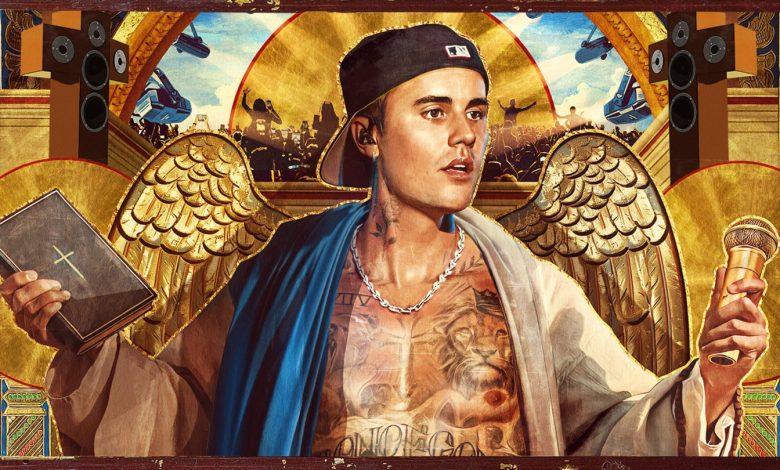
For the millions around the world wondering what Justin Bieber has been up to these past few years — since music seemingly took a back seat to his life as a full-time husband (he married Hailey Baldwin in 2018) and father (son Jack Blues was born in August) — it may be surprising to learn that the pop sensation did release something new this month.
On April 3, the 31-year-old revealed his fashion brand, Skylrk, with a video directed by 3D artist Gal Yosef that shows an animated Bieber riding an electric scooter to a house that he then promptly burns. Strewn about inside are relics of his past life, including the smiley face logo of the Drew House clothing line he started in 2019 with former friend Ryan Good (Drew is Bieber’s middle name); outside, waiting while the residence goes up in flames, is his wife with a stroller. The two kiss and walk toward the setting sun holding hands, never turning back.
You might also like these posts:

That Bieber chose a scooter running out of power as a visual element was presumably no coincidence. Scott “Scooter” Braun, the manager who discovered the Canadian talent through a YouTube video in 2008, has been a constant presence in Bieber’s life from age 13 through adulthood. During their 15 years together, Bieber launched into the pop stratosphere, becoming one of the most popular artists on the planet, today boasting more than 78 million monthly listeners on Spotify, where 17 of his songs — or songs he’s been featured on — have each amassed over a billion streams. Bieber’s rise was the stuff of fairy tales. Reality, as it turns out, is a much more complicated story that’s rooted in questions of loyalty, wealth and health.
Indeed, Bieber has been torching his past in ways that aren’t just metaphorical. Professionally, he separated from his longtime team last summer, joining a number of uber-successful musicians who self-manage, like Taylor Swift, Bruno Mars and Morgan Wallen. In taking the lead on his business affairs, the singer has enlisted a tight-knit crew of compatriots who share his resolve to chart a new direction. Many in his inner circle also share his faith, ascribing to the beliefs of Churchome, a nondenominational Christian community with an outpost in Beverly Hills that is run by 44-year-old pastor Judah Smith, who also serves as a spiritual adviser to Bieber.
In recent months, Bieber has been giving glimpses into his new life on social media, but whereas usually what someone presents on Instagram is the best version of themselves — the most flattering angle, an idyllic backdrop, just the right filter and, of course, the caption conveying a life lived to its fullest — some of Bieber’s posts have been more cryptic.
“I think I hate myself sometimes when I feel myself start to become inauthentic. Then I remember we’re all being made to think we’re not enough but I still hate when I change myself to please people,” Bieber shared with his 294 million Instagram followers on March 22. That same day, he wrote, “I got anger issues, too,” adding that he wanted to “grow and not react so much.”
In other posts, Bieber shared feeling “unworthy,” like he’s “drowning and unsafe.” Further down the scroll are visuals of a hollow-eyed Bieber brazenly smoking a blunt and rapping about getting high. Recent photos of Bieber out and about show him looking gaunt and disappearing into his clothes. Off social media, he’s also displayed some questionable behavior. At the Super Bowl, Bieber was seen dancing atop a VIP suite sofa shirtless and barefoot, bewildering nearby spectators. And just last week, Bieber had a testy exchange outside a Palm Springs coffee shop, chastising a group of paparazzi: “All you care about is money, not human beings.”
For an artist whose music has lived under such hopeful banners as Purpose (the name of his fourth album) and Never Say Never (the title of his Jon Chu-directed 2011 documentary), the contrast was noticeably jarring for fans and casual observers alike (YouTube houses dozens of user-generated “What’s Going on With Justin Bieber?” commentary videos). The prevailing sentiment is that he is struggling. (Bieber’s reps refute this characterization.)
Concern for Bieber’s well-being turned into a full-on public discourse when, in January, he unfollowed a number of his former friends and associates — including Braun and deputy Allison Kaye (who, after running point on all things Bieber for the better part of two decades, resigned in January), Good (who was the best man at his wedding) and longtime security chief Kenny Hamilton (who shielded him from music industry vultures, bad actors and others, like accused sex trafficker Diddy, according to multiple people present at the time), among others.
Now, former friends and ex-associates excised from his world, along with musical collaborators, his record company and, of course, his fans, are coming to terms with a new chapter in the book of Bieber. And some are questioning the choices he’s making.
“Whatever he’s going through, I pray for him and hope he’s OK,” says former Bieber collaborator Poo Bear, who co-wrote some of his biggest hits, including Billboard No. 1s “Despacito,” “I’m the One,” “Where Are Ü Now” and “What Do You Mean?”
“Seeing him disintegrate like this … it’s watching the embodiment of someone not living their purpose,” says one ex team member. “He’s lost. There’s no one protecting him because there’s no one there willing to say no to him. You say no, you get blown out.”
Mario Lavandeira, better known as Perez Hilton, who has been obsessively following Bieber’s every post, posits to The Hollywood Reporter, “Justin Bieber is like a male Britney Spears: He’s trolling, partly because he wants attention, and also because he thinks he’s so funny.” (In an April 10 Instagram story, Bieber joked of Stevie Wonder, “This fool never sees my FaceTimes.”)
To that end, a source close to the singer offers that Bieber is just doing as media-savvy pop stars do. “Artists are artists — they don’t look at the world the way you and I do,” says the insider, who laughs off the notion that Bieber is in distress. “He;s healthier than all of us — physically and mentally.”
“He’s managing himself through his own family office now, and there’s skepticism on if he can do it alone,” says Chris Anokute, a veteran music executive who’s worked extensively with Katy Perry. “He’s leaving home for the first time. He’s building a business without the team that took him here. I’m sure he’s feeling that pressure. But he can [do it]. At the end of the day, Justin Bieber is a star, and consumers still want Justin Bieber. … He’s showing a lot of courage and foresight on what the industry is going to look like in the future.”
***
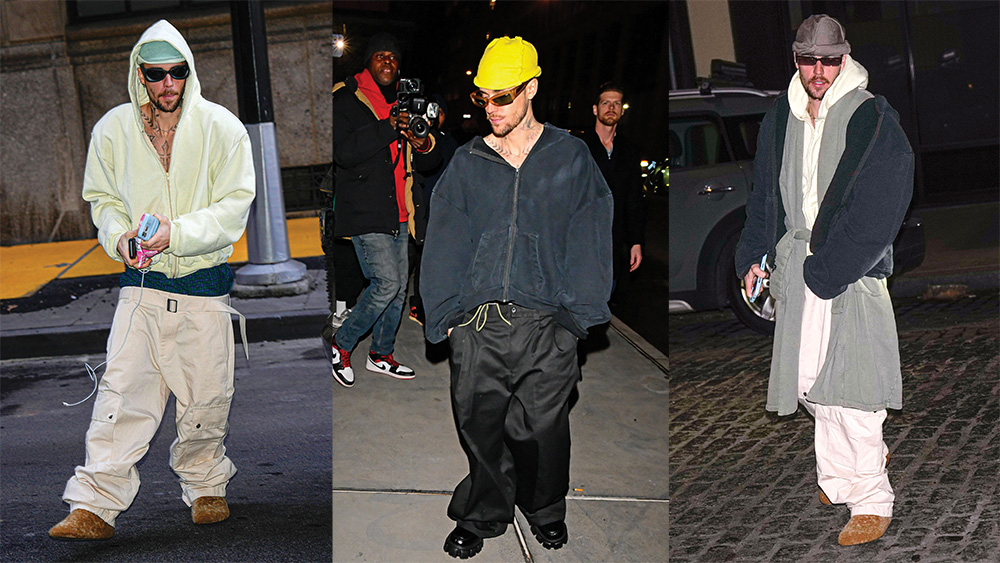
Although Bieber long ago shed his teen heartthrob image, trading his staple swoop hair for a buzz cut and covering his body in tattoos, his carefully curated ascent has always given a sense of wholesomeness. Despite his ink, which includes a cross on his chest, an image of Christ on his leg, scriptures on his arm and the name Jesus in Hebrew on his rib cage, he was never a purity ring guy, à la the Jonas Brothers. But starting out at age 15, when legions of very young fans anointed him a role model, Bieber has been leaning into this good-guy ethos, carefully guided by his former management team, led by Braun (who declined to speak for this story), which heavily promoted Bieber’s philanthropy as part of his image (via Make-A-Wish, where he’s been among the most requested celebrities for many years running, and by donating a dollar of each concert ticket sold to a charity). After all, what kid plucked from obscurity and handed fame and fortune wouldn’t feel grateful to those who cheered him on?
Still, there’s a feeling that his former managers may have “protected him too much,” to the detriment of his personal growth as a kid learning from his mistakes, several ex team members share. There had been instances of questionable behavior in the past; in his younger days, Bieber had a number of police altercations, including a 2014 arrest for DUI in Miami and a vandalism charge in Calabasas that same year. But Braun’s team was always there to smooth the young star’s path, in ways big and small, swooping in to delete embarrassing tweets and videos when necessary.
“He never felt the consequence of his actions because we were so worried about the illusion of Justin Bieber being ruined,” offers an insider. “It wouldn’t have ended his career. He would have felt the sting, though.”
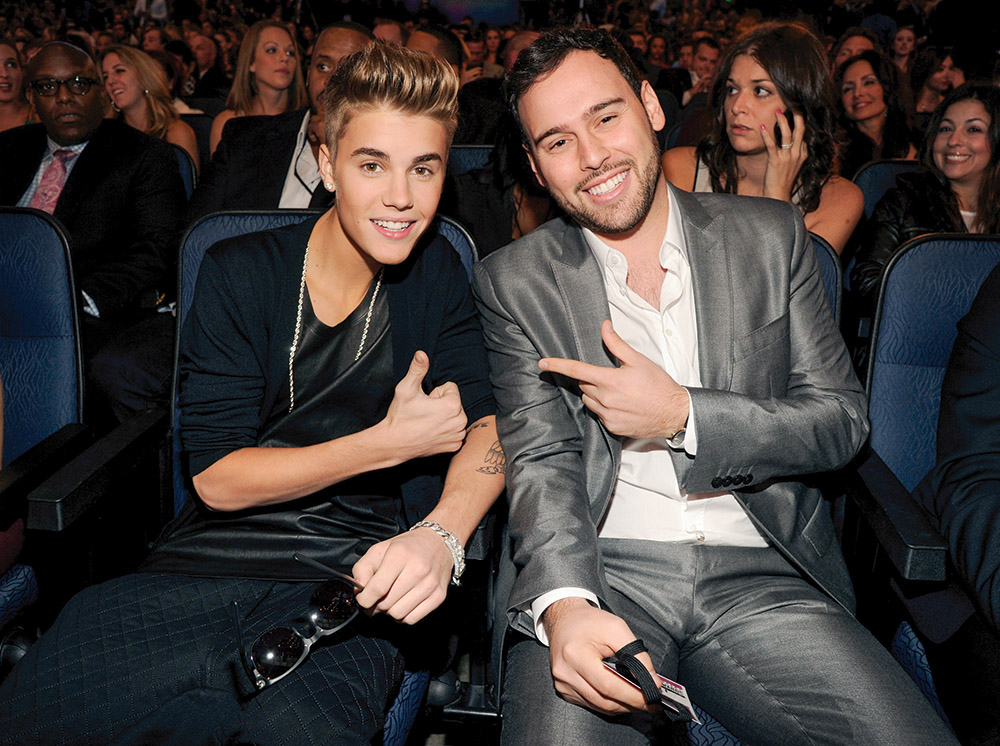
In their efforts to keep the artist happy, there was finger-pointing when things didn’t go Bieber’s way, sources reveal, especially concerning matters like budgets. Discussions about complicated music matters like song splits or creative decisions on ancillary projects could get tense, and Bieber, says a confidant, “doesn’t like conflict or drama.” At the same time, Bieber wants to give of himself. “Justin is an exceptionally generous person,” adds the insider. “He doesn’t want to hurt anyone’s feelings or get into arguments.” In fact, Bieber long ago instituted a team-wide directive: No talk of business after 6 p.m.
Running the show as of fall 2022 is Will Bracey, a former tour manager for Fifth Harmony whose title is Chief Operating Officer at “The Office of Mr. Justin Bieber,” according to his email signature. The press-averse Bracey, who declined to speak for this article, is described as a sort of consigliere to Bieber by several people who’ve interacted with him. “He’s running the logistics and operations in service of the family,” says one source, who distinguishes Bracey as “operating at a very high level” but also describes him as not a typical music biz bro. Adds the insider: “He’s diligent and hardworking. He cares about Justin as a person.”
Another describes Bracey, who is engaged to Fifth Harmony alum Ally Brooke, as “obsessive” about Bieber. “He’s protective of people knowing about his closeness with Justin, but then he’s always talking about Justin and about ‘being at his service,’ ” adds the source.
Bracey worked under Braun on Bieber’s ill-fated Justice world tour in 2022, which was plagued from the get-go. The pandemic delayed its start by nearly two years, and four months after it finally kicked off in February, Bieber was diagnosed with a rare facial paralysis disease called Type 2 Ramsay Hunt syndrome and had to take several weeks off. By September, after completing around 45 concert dates, he pulled the plug on the rest of the Justice outing — a year’s worth of shows in the Far East, South America, Australasia, the Middle East and Europe.
Sources say that his management — Braun and Kaye at the time — advised against canceling, noting that the tour’s routing, which was designed to include off days and buffers like weeklong breaks (during which the Biebers could work in luxe vacations), was the lightest lift possible. But Bieber wanted to get off the road to be with Hailey, according to people privy to his decision-making at the time. That meant forgoing the estimated $90 million he would have netted from the tour and laying off more than 100 crewmembers (many still recovering from the work stoppage of COVID). God’s got his back, Bieber intimated of his decision, say multiple people involved with the tour. “Can’t argue with God,” his handlers conceded.
In September 2022, Bieber announced: “This past weekend, I … gave everything I have to the people in Brazil. After getting off the stage, the exhaustion overtook me and I realized that I need to make my health the priority right now. So I’m going to take a break from touring for the time being. I’m going to be OK, but I need time to rest and get better.”
The decision to “pull down” the remaining Justice dates brought Bieber’s mental health to the forefront. Though his struggles with substance abuse (from which he recovered) were well documented — revealed in painful detail via Bieber’s 2020 10-part YouTube Originals docuseries, Seasons — the public pronouncement of exhaustion had fans expressing worry and the industry wondering whether he’s fit for the grueling demands of touring.
The Justice cancellation also triggered a series of financial consequences that are still plaguing the artist today. In not fulfilling his contractual obligation to AEG (the tour’s promoter) and completing the concert dates, for which he received a $40 million advance, he was left owing a large debt to AEG (insiders claim more than $20 million). According to sources, then-manager Braun, through his company, covered what was owed in the form of a loan at a highly favorable (to Bieber) rate. To date, Bieber has only returned a portion of what he borrowed.
While one might think that Bieber, who sat at the top of the pop heap for the better part of the 2010s, would be flush with cash, multiple insiders, who until recently were familiar with his finances, suggest he’s overstretched — real estate purchases and renovations (he owns six homes, including a $26 million estate in Beverly Hills’ exclusive Beverly Park neighborhood, a $16 million home in La Quinta, and a property in the tony Gozzer Ranch Golf and Lake Club in Idaho, where the Kardashian-Jenners are known to holiday) and destination vacations with friends are particularly taxing — even on the heels of a $200 million deal for the publishing rights to his catalog, executed in January 2023.
(Bieber’s reps vigorously deny the assertion, telling THR, “Any source that is trying to sell you a story about alleged financial distress … either doesn’t understand the entertainment industry or, more likely, is trying to paint an unflattering portrait of Justin, which bears no resemblance to reality.”)
The sale of some 290 songs, his entire pre-2021 catalog, to Hipgnosis Songs — among them Bieber’s portion of writing credits on “Sorry,” “Holy” and “Ghost” — was seen as a major win for an artist who was only 29 at the time. That is especially true given that Bieber has relied on collaborators for his biggest hits, splitting rights with as many as 11 people on 2021’s “Peaches” (which also holds the distinction of setting a Grammy record for the most songwriters on a song of the year nomination).
Though his publishing share was enough to draw a steady stream of “mailbox money,” as royalties are known colloquially — to the tune of millions in annual earnings — sources say Bieber was keen on selling, trading those regular payments for a lump sum. The publishing assets were appraised at a value of $140 million at the time, but Bieber’s team, which then included Braun, attorney Michael Rhodes and business manager Lou Taylor, was able to get the price up by $60 million. The deal was geared toward putting Bieber in a position of financial security that would last him for quite some time — one person describes it as “the largest nest egg in music history” for what is ostensibly fractions of a song — and it may be one of the last catalog sales to command a price north of $200 million. Late rapper Biggie Smalls’ songs, which include some of the most sampled beats and melodies in hip-hop, went for half that amount when Primary Wave purchased his publishing and publicity rights in March.
Before the catalog gold rush, which opened the door to monster deals like Bruce Springsteen’s $500 million sale of his recordings and publishing to Sony Music in 2021, “these asset sales were normally distressed sellers — people that had tax problems, divorces, or got to a point in their age where their health was failing them and limiting other income streams such as live [shows],” explains Hipgnosis founder Merck Mercuriadis, who helped propel the “song management” market and worked on the Bieber deal. “Making millions of dollars a year versus somewhere around 15 times that amount up front is not the same freedom. With the money up front, you’re free to plan in a way where you don’t have to be beholden to anyone else. You don’t necessarily have to go on tour or make another record, if that’s not how you want to spend the next few years. You can then afford to take some risks on yourself. … For Justin, I think that was the motivation: He had ill health and was at a time in his life where he was married and very in love and contemplating family. Making the deal gave him the freedom to focus on that and not have to be on the treadmill he’d been on for almost 15 years.”
“I think it was smart,” says Anokute of the sale, which valued Bieber’s share of each song at around $600,000. “With AI, I don’t know what the value of a catalog will be in the future. Anyone frowning at making a quarter-billion dollars on music that you made before the age of 30 is a fool. He sold that music, and he has another 10 to 20 years ahead of him where he could own everything.”
(It’s worth noting that Hailey Bieber is herself a successful model and entrepreneur who launched her own skin-care line, Rhode — her middle name — in 2022, and is reportedly exploring a sale.)
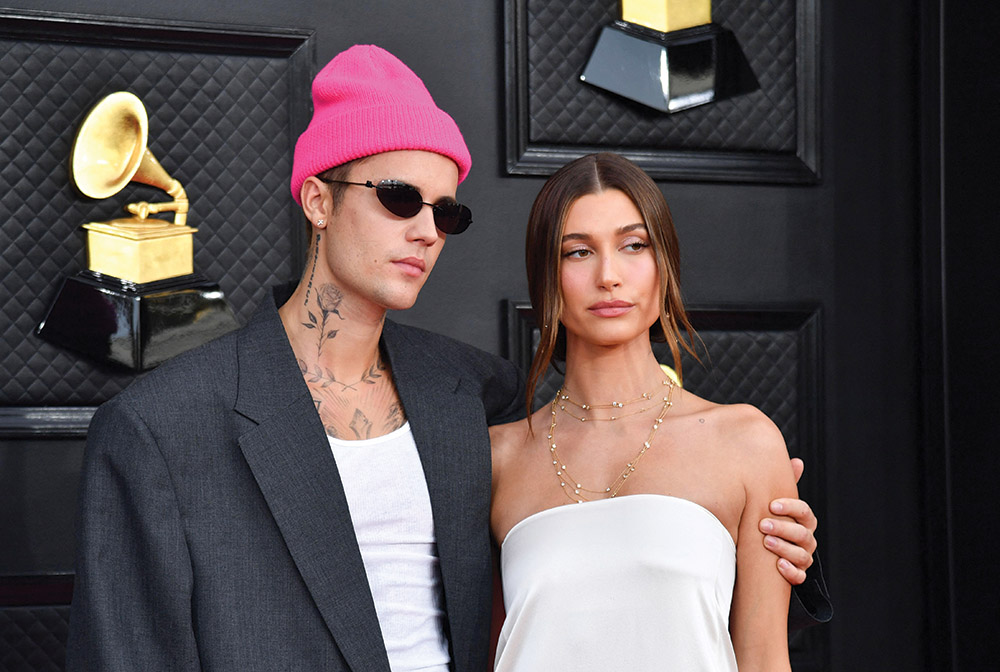
Smart or not, the deal also opened a rift between Bieber and Braun, with the former said to be resentful of the latter’s ballooning wealth. In fact, the tension had been building for some time.
Although widely credited with launching Bieber’s career as a teen phenom (with the backing of Usher), Braun’s Svengali-like guidance drew some ire from the general public, and even more so in recent years as struggles unique to child stars have been exposed in the media. Bieber himself made reference to the pressures on young performers in a teary interview with Apple Music’s Zane Lowe in 2020. Speaking of Billie Eilish, who was then 18, Bieber said, “I just want to protect her,” adding, “It was hard for me being that young and being in the industry and not knowing where to turn, and everyone telling me they loved me, and turning their back on you in a second.”
There’s little doubt that Braun is a savvy mogul. He was an early investor in Spotify, Uber and Waze, all the while guiding the careers of artists across the musical spectrum, from Ariana Grande to J Balvin to Demi Lovato. But with Bieber, Braun accomplished something truly rare in the music industry: growing a pop career into adulthood with a string of hit singles, two documentaries and 23 Grammy nominations (and two wins). Today, Bieber ranks among the five most-followed celebrities in social media (alongside Swift, Grande and ex-girlfriend Selena Gomez).
But as Braun’s own stature in the entertainment industry was rising, with TV and film projects added to his portfolio (as an executive producer on the hit series Dave and the Balvin documentary The Boy From Medellín, and a partner with Marvel founding chairman David Maisel in Mythos Studios), he’s also stumbled into some PR snafus of his own, like his feud with Swift over the ownership of her catalog, which Braun’s Ithaca Holdings purchased in 2019 in a deal for Swift’s Nashville-based label, Big Machine, for a reported $300 million. In the minds of millions of Swifties, Braun was the greedy bad guy who had “bullied” the singer out of the chance of owning her own music.
(Both parties ultimately came out ahead. A year and change after purchasing the Swift catalog, Braun sold those rights to a private equity firm for a reported $405 million, a profit of over $250 million. For her part, Swift resolved — and delivered— to rerecord and re-release her earlier albums with the amended title “Taylor’s Version.” Her reenergized base prompted monster streaming numbers on the rerecords, which fed appetite for new material and launched the record-shattering Eras tour.)
The succession of prescient and profitable moves brought Braun to the attention of South Korean entertainment giant Hybe, which in 2021 acquired Ithaca Holdings in a deal reportedly valued at $1 billion. As part of the sale, longtime staffers were given a total of $50 million in stock from Braun’s personal stake. Bieber and Grande were each gifted $10 million, per public filings. Bieber’s contract with Braun would now move over to Hybe America, for which Braun serves as CEO.
In June 2024, Braun announced that he was leaving artist management, writing of Bieber and Grande: “To see them both come up to be the legends they are today will forever be one of my greatest honors. As we change our working relationships now, I will continue to root for them with the same passion that I did at each of their humble beginnings.” But Braun is still bearing the brunt of criticism for participating in contracts that the public perceives as taking advantage of young artists — specifically in the realm of rights and ownership.
“It’s easy to villainize Scooter,” says one high-ranking music executive familiar with all the parties, reasoning that Braun was already viewed negatively due to the dust-up with Swift. “He’s not Lou Pearlman; he’s the modern-day David Geffen. No trickery or shenanigans. You could make a plan and get things done with Scooter. And you could always make money with him.” Another longtime Braun associate echoes that view: “Actions speak louder than words, and Scooter put his money where his mouth is. He built a profitable business and made [Justin] a billion dollars.”
***
One figure who has seemingly benefited from an association with Bieber, and remained in the star’s inner orbit, is his longtime pastor Judah Smith. He’s seen his Churchome community grow steadily in the past decade, now reportedly drawing more than 10,000 parishioners weekly, among its five locations. Its Beverly Hills visitors have included Kourtney Kardashian, Ciara and Russell Wilson.
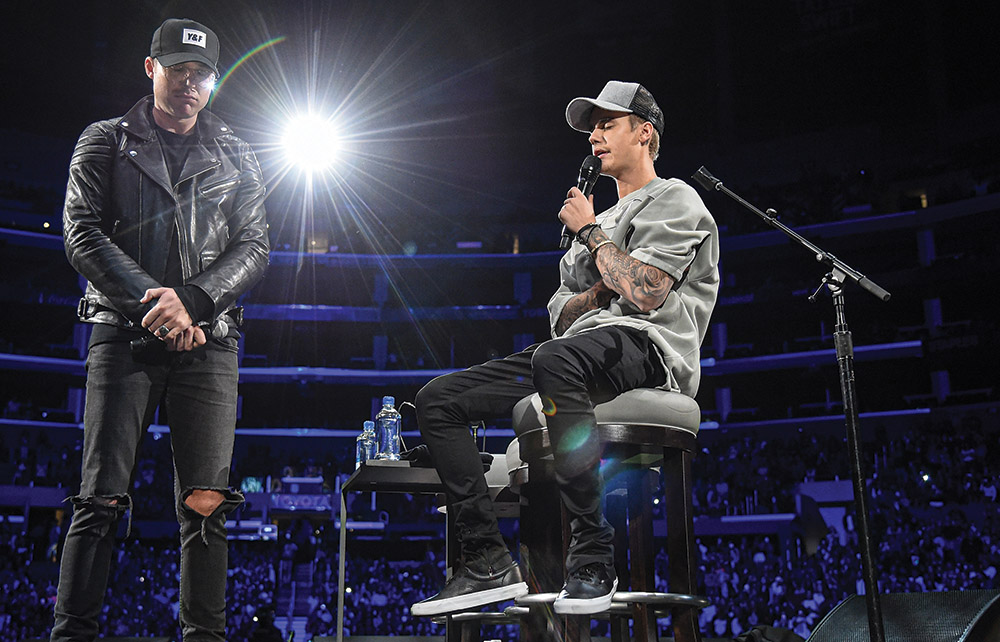
Bieber regularly attends Churchome sermons on Zoom, in addition to appearing in person with Hailey. In 2019, he helped lead a service, noting in a clip leaked to TMZ that he hadn’t done so before because “I didn’t want people to think this was a show.”
“He’s got the biggest heart in the whole world, he forgives very easily, [and] he believes the best very readily,” the pastor once told The Daily Beast of his star disciple. “[We] talk all the time and pray a lot and think a lot together.” (The pair also have gotten matching tattoos together while on tour.)
“Judah and his wife are great people,” says one congregant of Churchome, which is relatively permissive in its social ethos along the evangelical continuum, preferring hopeful messaging about scripture to Jim Bakker-like fearmongering. This accepting ideology is attractive to parishioners in its big, coastal cities with more liberal social views and values.
Smith has pursued his own Hollywood projects. In 2017, Amazon reportedly shot an unaired talk show pilot, produced by Management 360’s production arm, which would have seen him in conversation with famous figures about life’s biggest questions. He incorporated a new entity, Pitiful Palace, in March 2024, which according to public records intends to focus on faith-based multimedia entertainment.
Both Bieber and Smith, who sits on the board of one of the singer’s companies, were longtime clients at Lou Taylor’s business management firm Tri Star. They both appear to have left in spring 2024, shortly after Tri Star — which had already been embroiled in Britney Spears’ conservatorship dispute — began to publicly figure into Diddy’s legal saga. Taylor, herself the wife of a pastor, also exited the Churchome board. (She declined to comment.)
As an adviser on records or tours, Smith obviously has none of Braun’s chops, but the two men do share some common traits. Both are deeply committed to their respective faiths (Braun, the grandson of Holocaust survivors, is Jewish and helped bring the Nova Music Festival exhibit, honoring the hundreds killed by terrorists in Israel on Oct. 7, 2023, to the U.S.); charismatic in private meetings and public speaking engagements; and each has an intuition for popular culture. But where one is fluent in the language of entertainment, the other now seated at the table is a novice in an industry that’s fraught with shady practices and constant change.
“You have a narcissistic pastor egging on a narcissistic artist, both fueled by Jesus, running around trying to do business,” says someone familiar with Smith and Bieber. Another affirms the tremendous sway and influence Smith has over Bieber when it comes to major career and life decisions.
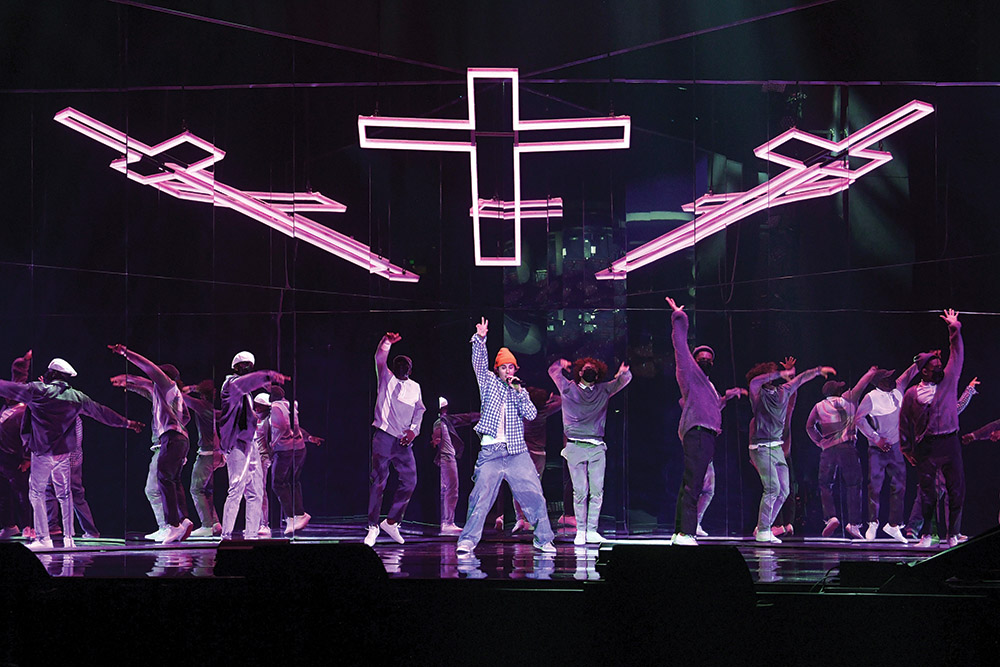
***
And when the business is music, things get even more complicated. The industry is built on supporting album cycles — it may take a year to record and produce an hour’s worth of songs, during which time the team is planning a tour, branding deals, merchandise and all manner of creative related to the project. That means working at least two years out on a global plan and committing the artist for two years post-release.
In Bieber’s case, the absence of an album cycle makes tapping large sums of money more challenging. And since Bieber sold off his publishing, smart financial planning is key to this new phase, when automatically generated income is diminished.
Bieber’s first record deal with Raymond Braun Music Group (RBMG), signed in 2008 and likely renegotiated, entitled the company then jointly owned by Braun and Usher (the latter sold his interest in RBMG in 2022 for an estimated $40 million) to share in the profits of Bieber’s album and song streams and additional revenue sources related to the recordings. In 2020, Bieber’s RBMG contract came to an end and he signed a new recording deal, where he and Braun partnered on a label (of which Bieber is a majority shareholder) that calls for four more albums via label partner Def Jam Records (a subsidiary of Universal Music Group), but since 2021’s Justice, Bieber has only released guest appearances on tracks by Don Toliver and SZA.
Insiders assert that Tunji Balogun, who joined Def Jam as CEO in 2022 after a decade at RCA Records working with the likes of Bryson Tiller, Childish Gambino, Khalid and Wizkid, doesn’t have a relationship with Bieber, and his efforts go only so far. (Universal Music Group did not respond to requests for comment.)
“He’ll release music when he feels comfortable,” says a confidant of Bieber. Meanwhile, Bieber has been hosting “jam sessions” at his house where attendees have included his longtime DJ Tay James, musical director HARV, SZA collaborator Carter Lang and Australian artist Eddie Benjamin (whose song “Maniac” soundtracks the Skylrk visual).
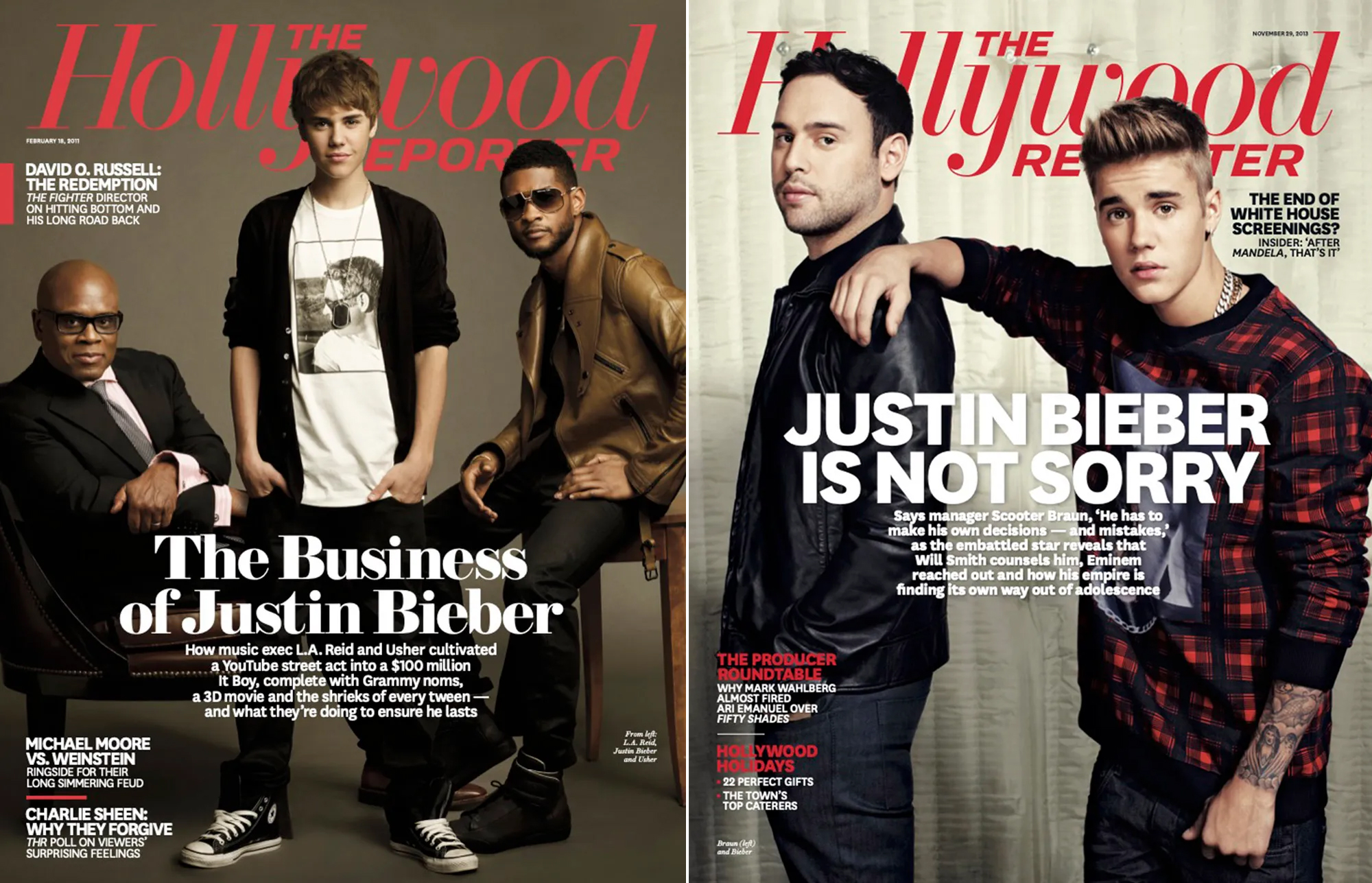
A version of this story appeared in the April 16 issue of The Hollywood Reporter magazine. Click here to subscribe.
Source: Hollywoodreporter
HiCelebNews online magazine publishes interesting content every day in the music section of the entertainment category. Follow us to read the latest news.
Related Posts
- Paused ‘Citadel’ Spinoffs Will Just Become Part of Amazon Show’s Season 2
- 2 Protestors Tased, Others Removed at Marjorie Taylor Greene’s Town Hall: ‘The Protest Is Outside’
- Meet Tamron Hall’s ultra-successful husband Steven Greener
- ‘The Breakfast Club’ Stars Reunite for First Time in 40 Years, Reflect on Why Film Wouldn’t Be Made Today
- Aimee Lou Wood Thanks ‘SNL’ Star for Sending Flowers After ‘White Lotus’ Parody





